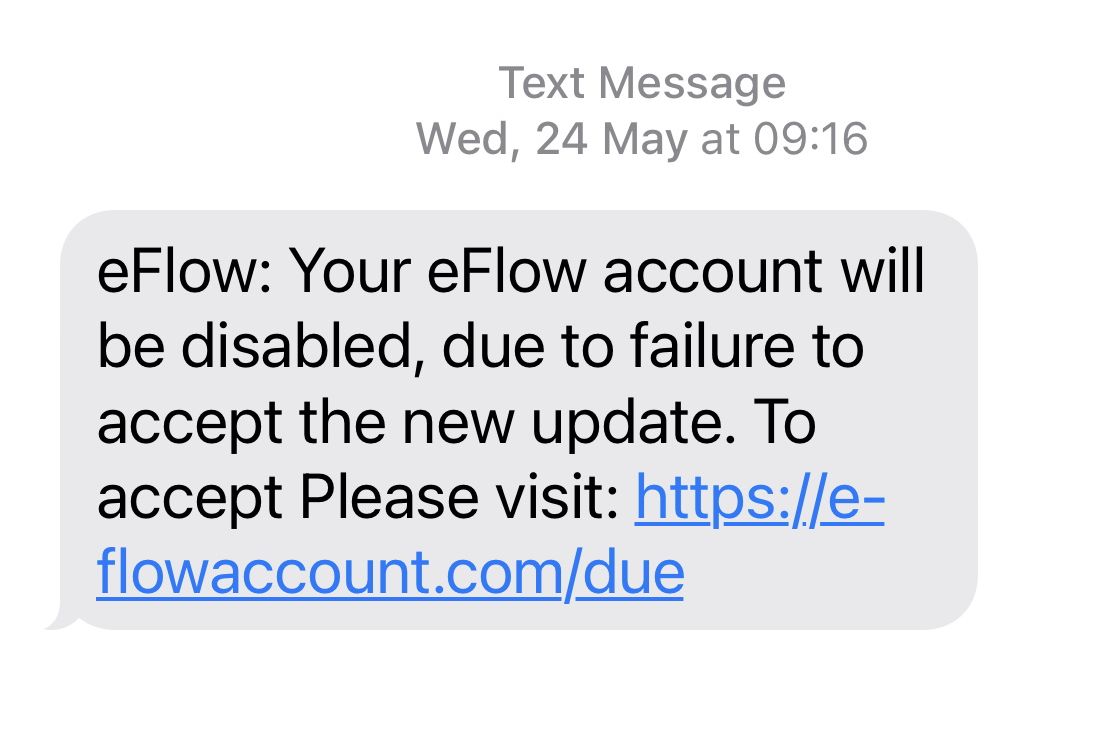
Toll Operator Issues Warning About Clicking on Fraudulent Texts
A toll operator is taking an innovative approach to combatting fraud. By running radio ads, the company is cautioning users not to click on links within text messages claiming to be from them.
The company has noticed an increase in fraudulent SMS messages circulating throughout the country. To clarify their position, they emphasize that they are not associated with any scam attempts and do not send links in their text messages. Any messages containing links should be deleted immediately. The company assures that their systems have not been compromised and no data breaches have occurred.
These fraudulent texts, also known as ‘smishing’ attempts, often employ urgent language to coerce recipients into clicking on a provided link. However, clicking on these links opens the door to potential personal and financial information theft.
Concerns about fraudulent online activity have also been raised by Bank of Ireland, which has reported the creation of up to 10 fake eFlow websites per day. These sites aim to deceive Irish citizens into disclosing their banking details.
Recent findings from the telecoms regulator, ComReg, reveal the staggering extent of damage caused by scam calls and SMS texts in Ireland. It is estimated that these activities result in €300 million in financial losses annually. Approximately 365,000 instances of fraud due to scam calls and texts have been reported, with over 5,000 businesses falling victim to such schemes.
To combat this issue, ComReg is proposing measures that require operators like Vodafone, Three, and Eir to implement effective blocking systems to prevent scam operators from reaching potential targets. These measures include various technical solutions and protected registries.
Interestingly, the eFlow scam has proven to be more successful than other ‘smishing’ attempts in 2023. Notable individuals like broadcasters Sarah McInerney and Ciara Kelly have fallen victim to this scam. McInerney shared her experience of clicking on a fraudulent eFlow link and unknowingly providing her bank registration number and personal access code. Swift action was required to alert the bank and mitigate the damage.
In another investigation, the Irish Independent uncovered a fraud gang responsible for global scams worth over €115 million. These criminals utilized a now-defunct website called iSpoof.cc, which provided tools to disguise phone calls as trustworthy organizations, including eFlow. Victims in Ireland and elsewhere suffered significant financial losses.
The list of impersonated phone numbers in Ireland includes eFlow, banks, the HSE, gardaí, businesses, government departments, and delivery companies. Since 2020, approximately €40 million has been stolen through these fraudulent activities.
Denial of responsibility! VigourTimes is an automatic aggregator of Global media. In each content, the hyperlink to the primary source is specified. All trademarks belong to their rightful owners, and all materials to their authors. For any complaint, please reach us at – [email protected]. We will take necessary action within 24 hours.


